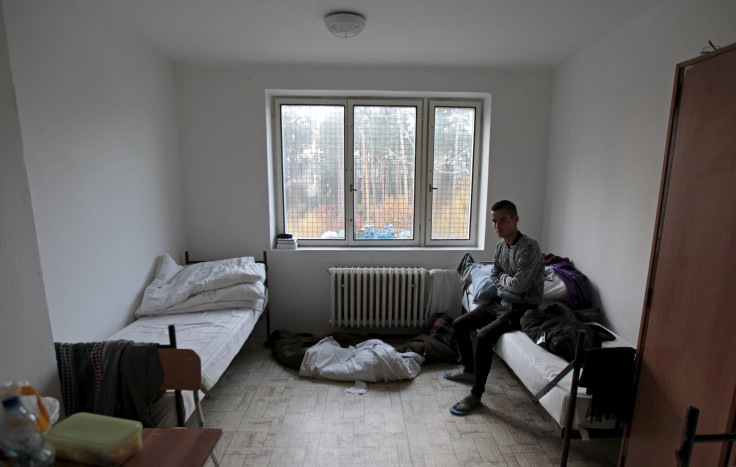Europe's Refugee Crisis: Migrants Go On Hunger Strike At Czech Detention Center

PRAGUE (Reuters) — Dozens of migrants went on hunger strike at a Czech detention center to protest against the length of their stay and the threat of repatriation, the country’s Interior Ministry and volunteer workers said. The Czech Republic has avoided large-scale migration through its territory, as most of the hundreds of thousands who have fled to Europe this year to escape poverty and war in the Middle East have passed via the Balkans to Germany through neighboring Austria. Those who do come through and do not claim asylum are detained, often held for weeks in centers and facing the threat of being returned to the European Union countries where they did claim asylum or entered the Czech Republic from.
The Czechs say the policy is strictly in line with European treaties, but the length of detentions and conditions in the detention centers have led to criticism by human-rights watchdogs.
The protest erupted at a newly opened facility in Drahonice, some 55 miles west of the capital Prague, Tuesday and continued Wednesday.
"In the morning [Tuesday] it was 44 people who started the hunger strike, then in the afternoon it was over 60," center volunteer Petra Damms told Reuters by phone. "It is not because of the physical conditions that they are striking, it is the extension of their detention, they don't know why." Damms said tensions rose after 40 people were transported out from Drahonice overnight, fueling detainees' fears of deportation.
An Interior Ministry representative said those migrants were sent to the EU country in which they claimed asylum. "Based on this, some foreigners got the wrong idea that the people were returned to their country of origin," Gabriela Vankova said.
Most of the 144 people currently in Drahonice were brought from another detention center in Bela-Jezova, which has been harshly criticized recently due to the conditions there.
Czech authorities detained 7,201 migrants in the first nine months of this year, usually for as long as 90 days. Many have journeyed on to Germany on their release.
Czechs voted in September by a small minority against quotas to distribute asylum seekers across the EU, putting them on a collision course with EU authorities and some other EU countries.
(Reporting by Robert Muller; Editing by Tom Brown and John Stonestreet)
© Copyright Thomson Reuters 2024. All rights reserved.





















